Abstract
OBJECTIVE. Two theories--agency and managerialism--are compared with respect to their usefulness in explaining the role of insiders on the hospital board: whether their participation enhances or impairs board financial decision making. DATA SOURCES/STUDY SETTING. The study used 1985 hospital financial and governing board data for a representative sample of acute care California hospitals. STUDY DESIGN. Relationships were examined cross-sectionally between the presence or absence of insiders on the board and measures of hospital financial viability while controlling for the organizational factors of system affiliation, ownership, size, region, and corporate restructuring. PRINCIPAL FINDINGS. Multiple regression analysis found significant relationships between insider (CEO, medical staff) participation and hospital viability. CONCLUSIONS. These results support the managerial theory of governance by suggesting that the CEO and medical staff provide informational advantages to the hospital governing board. However, the cross-sectional design points to the need for future longitudinal studies in order to sequence these relationships between insider participation and improved hospital viability.
Full text
PDF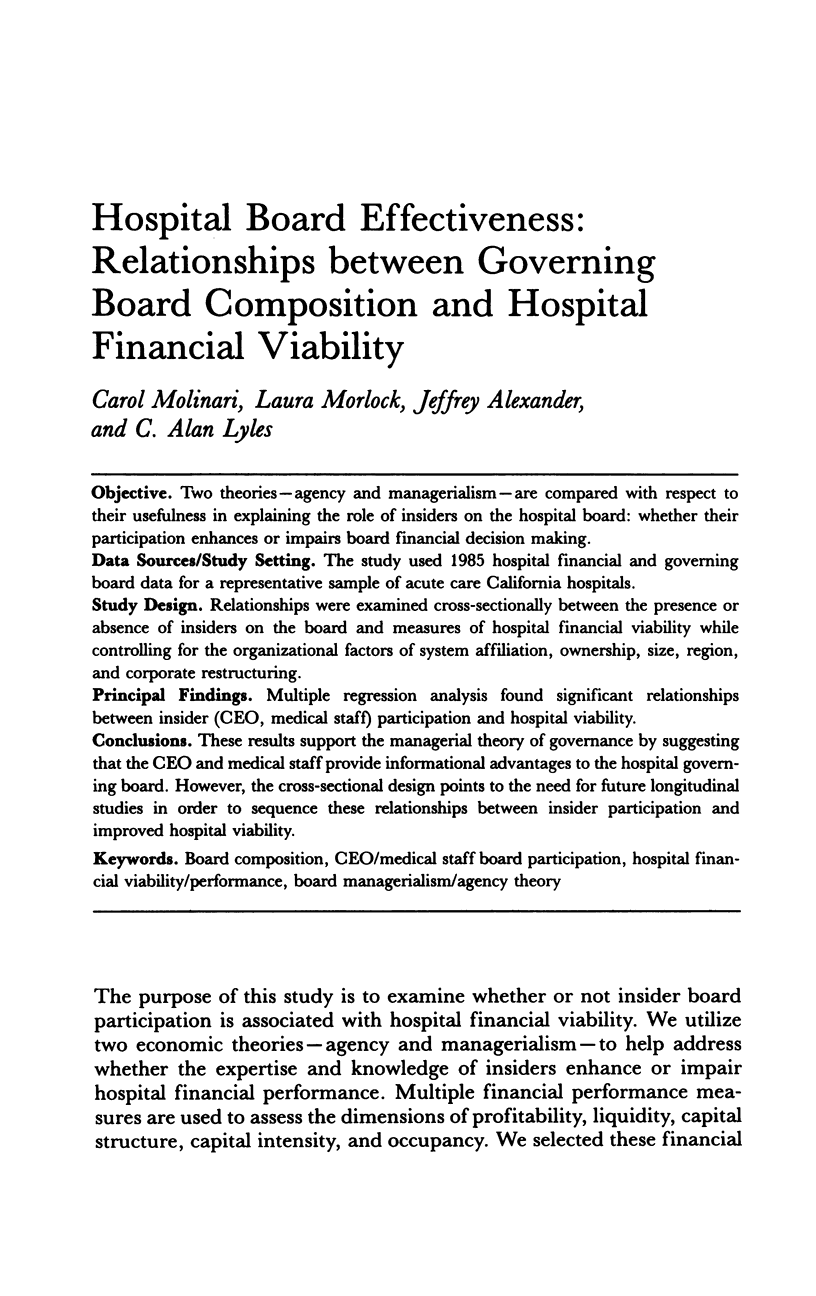
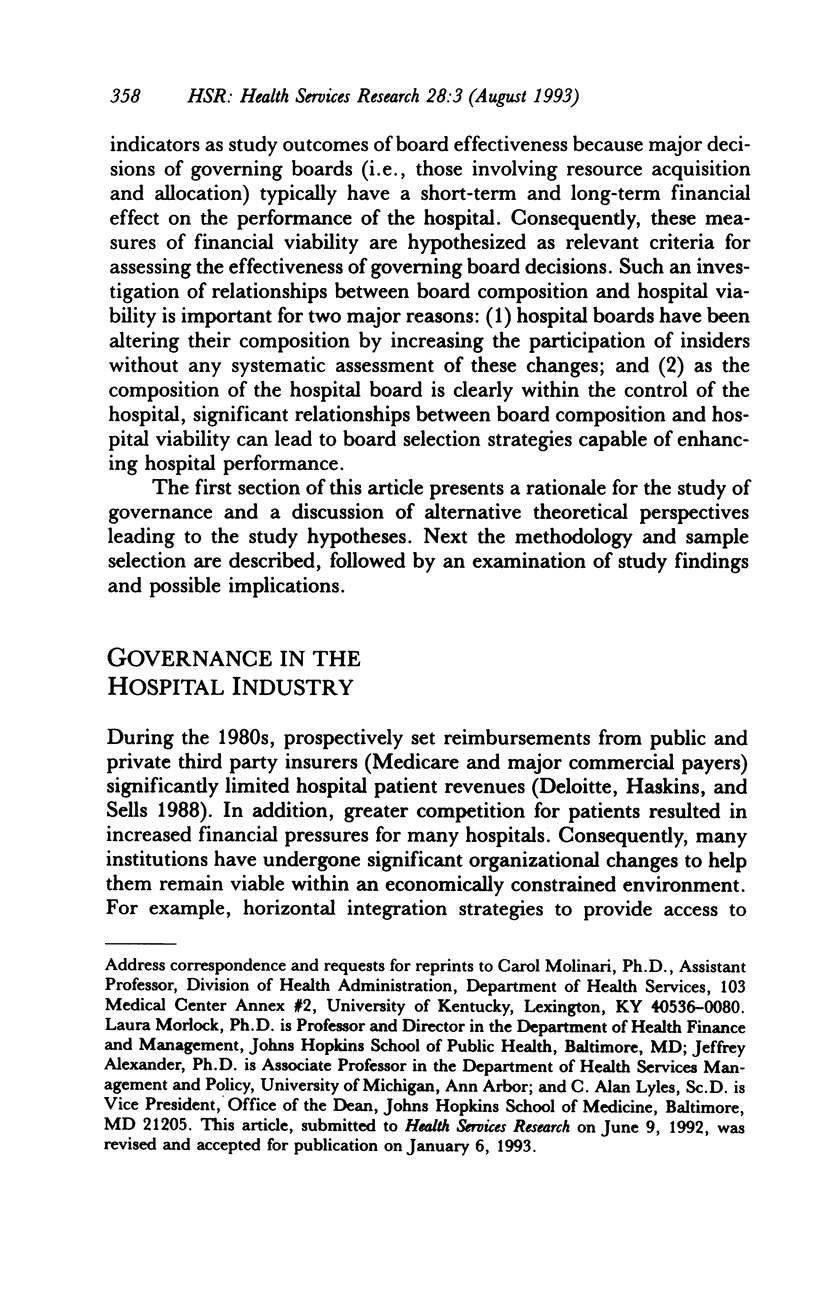
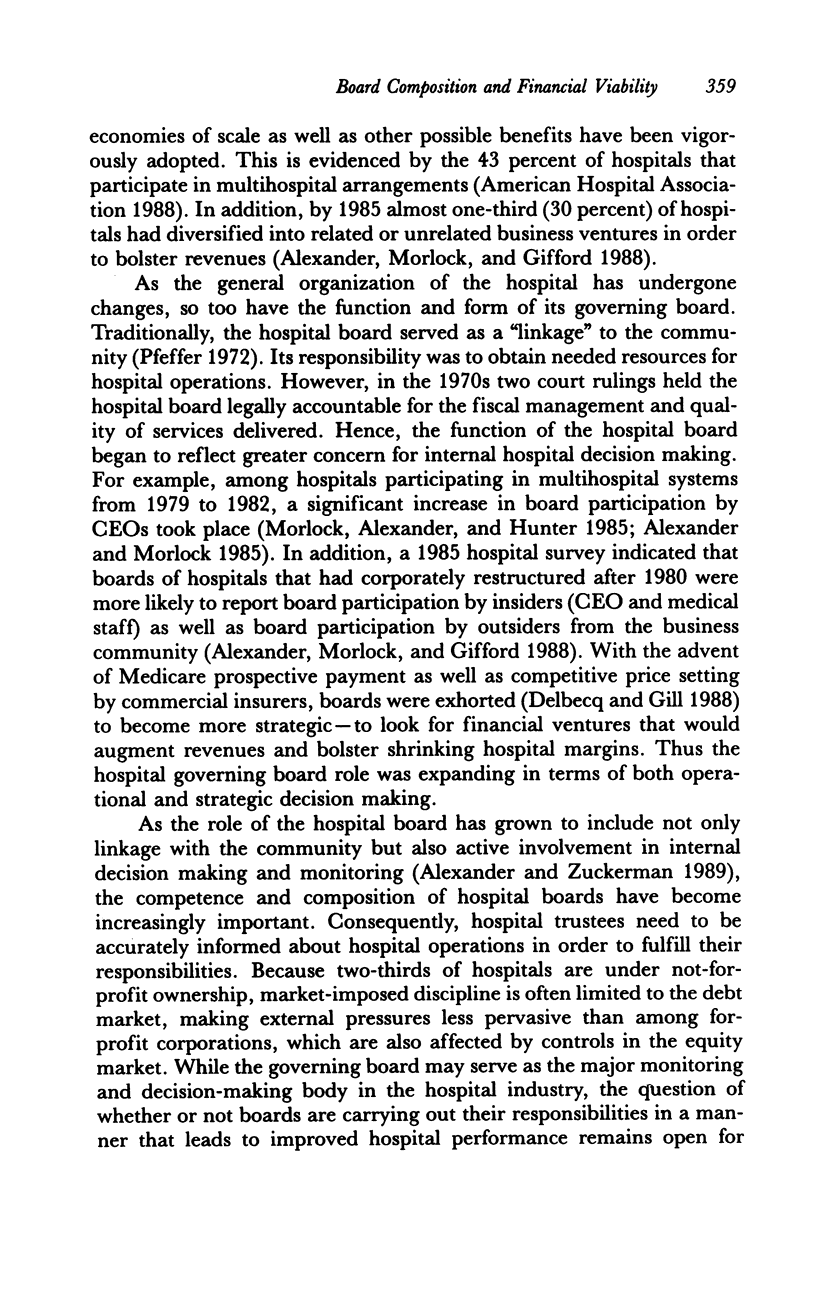
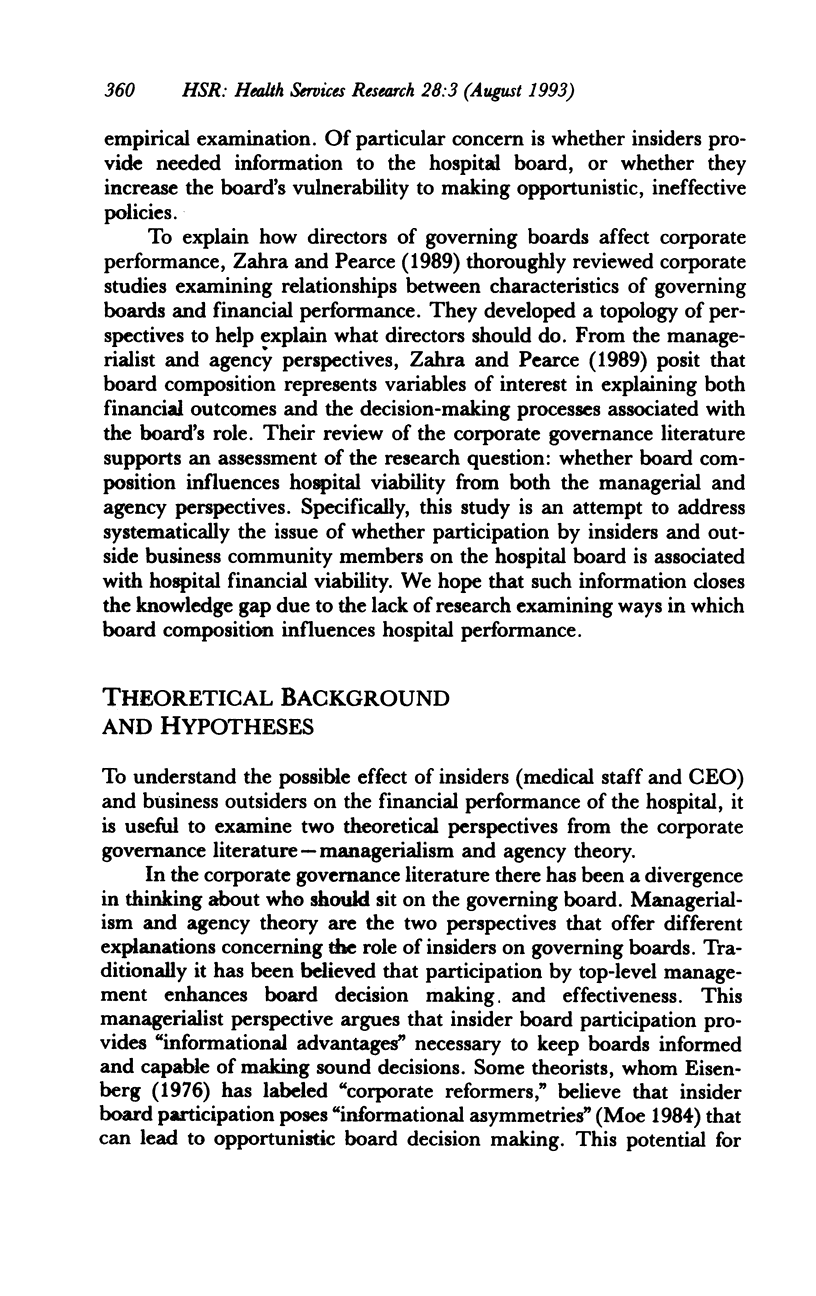
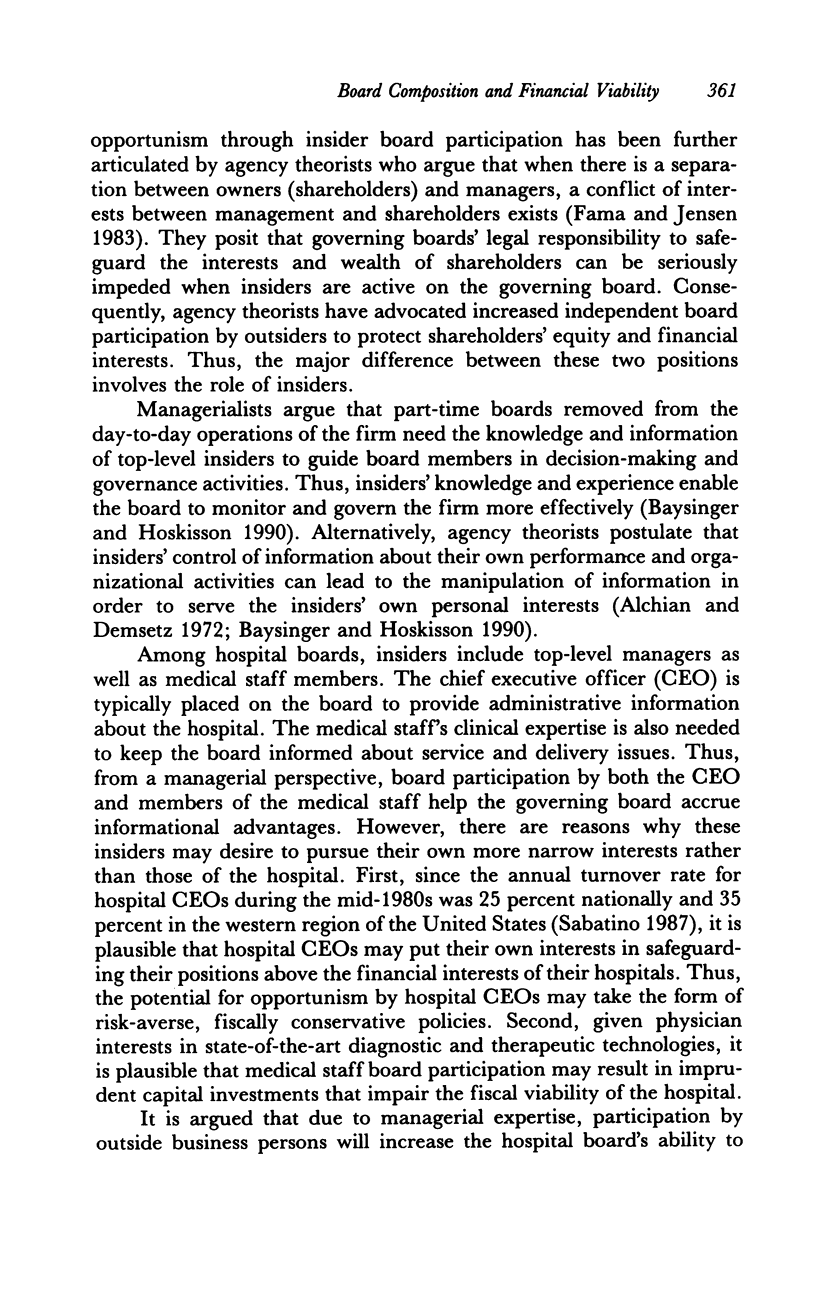
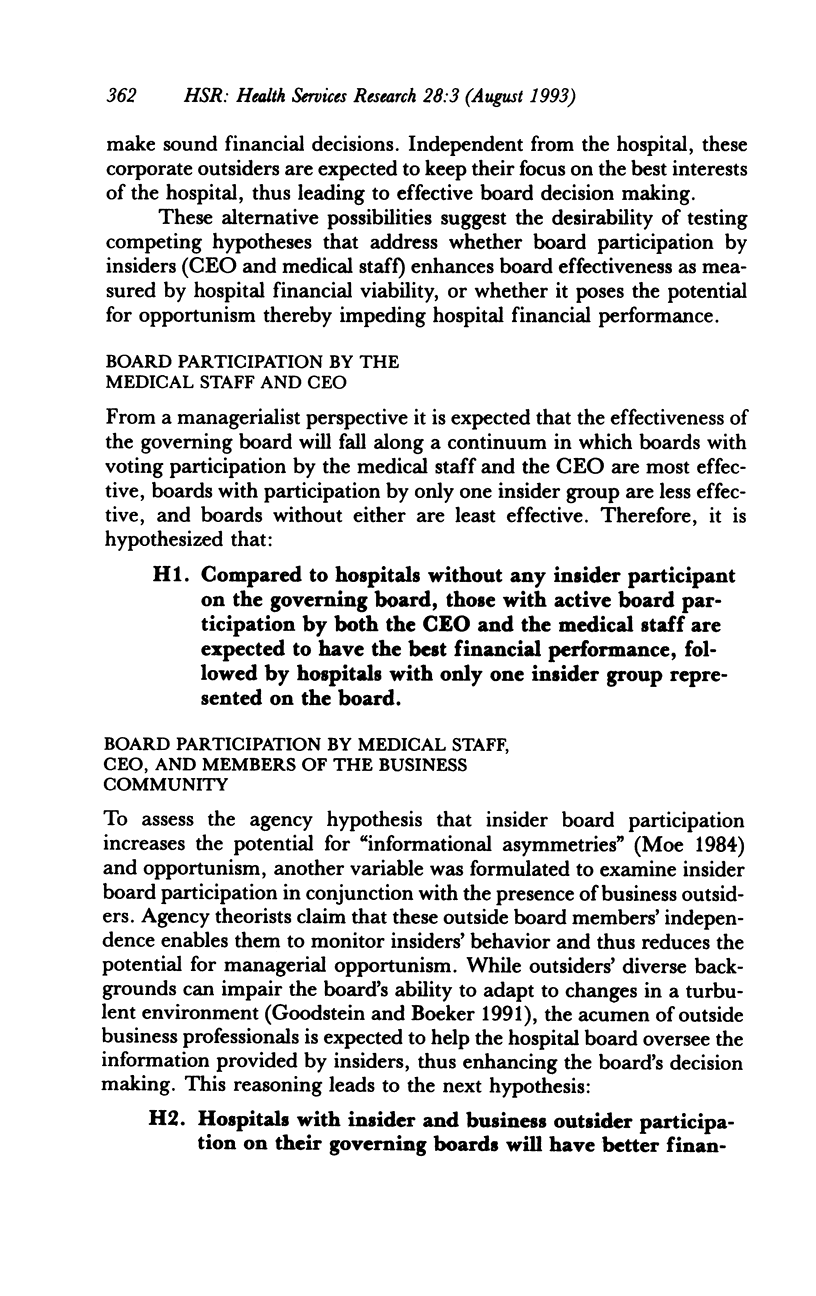
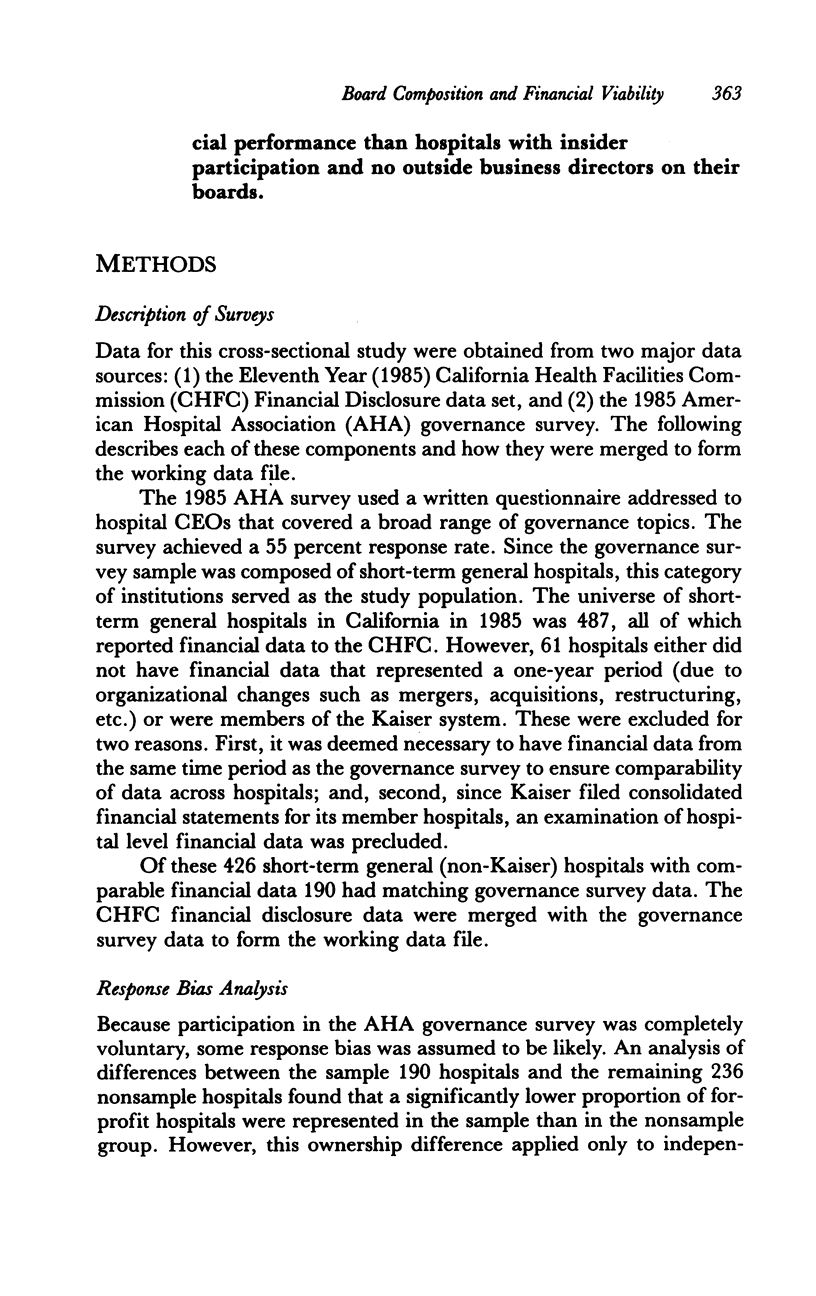
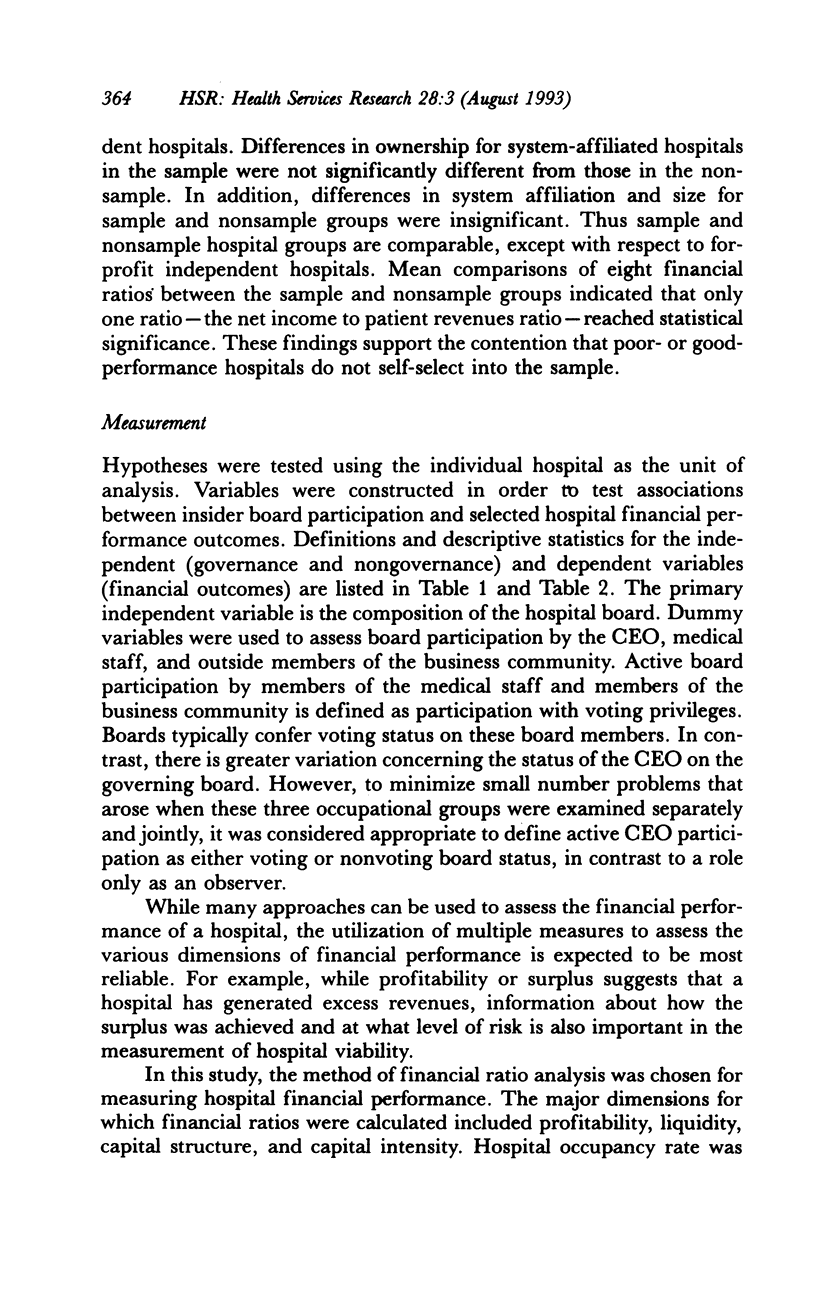
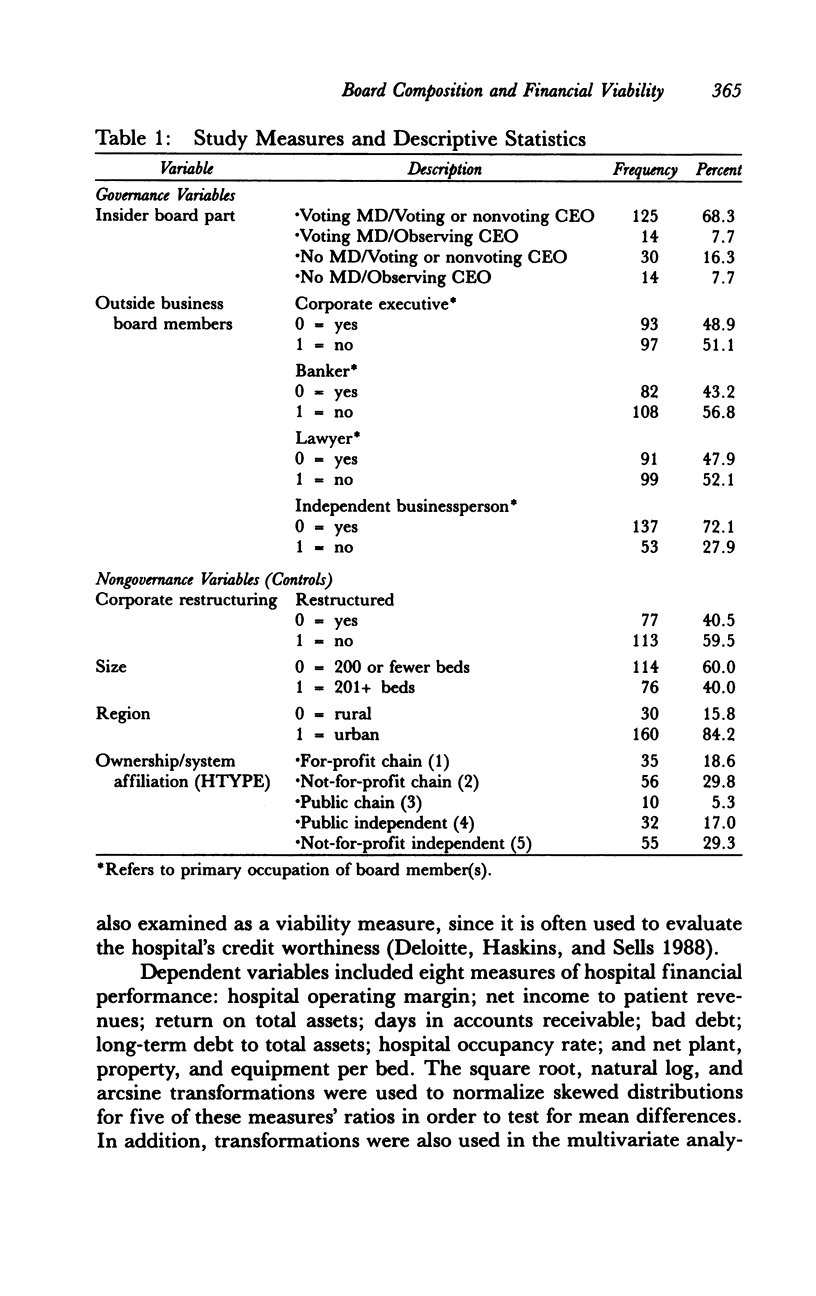
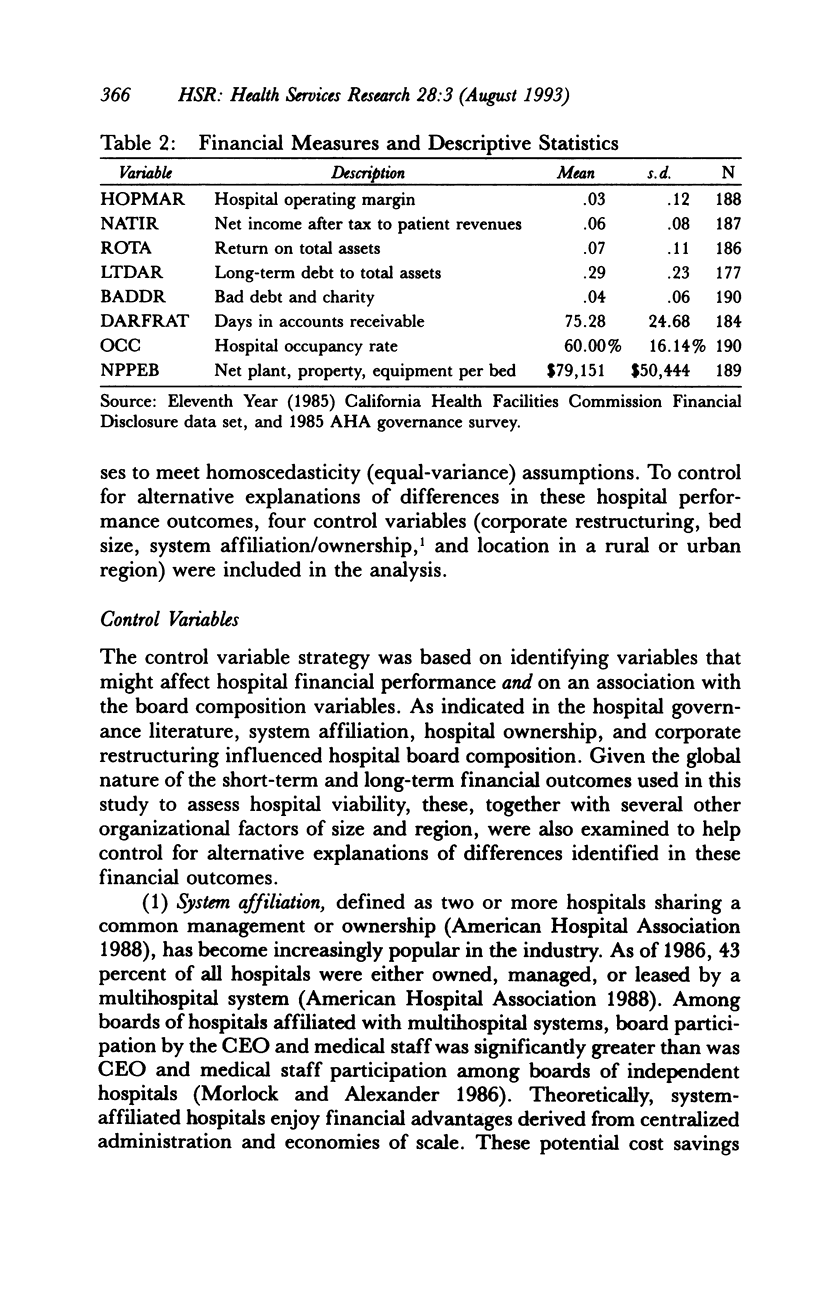
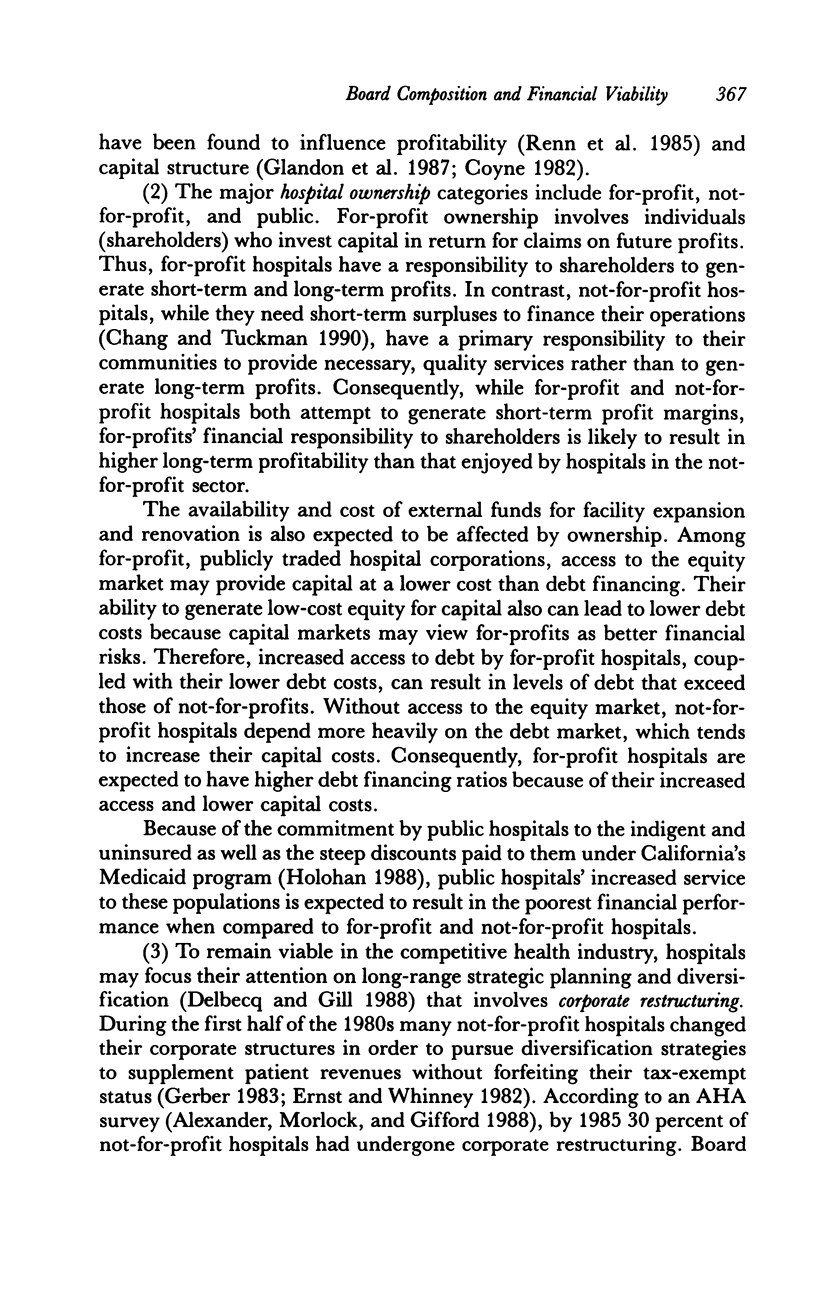
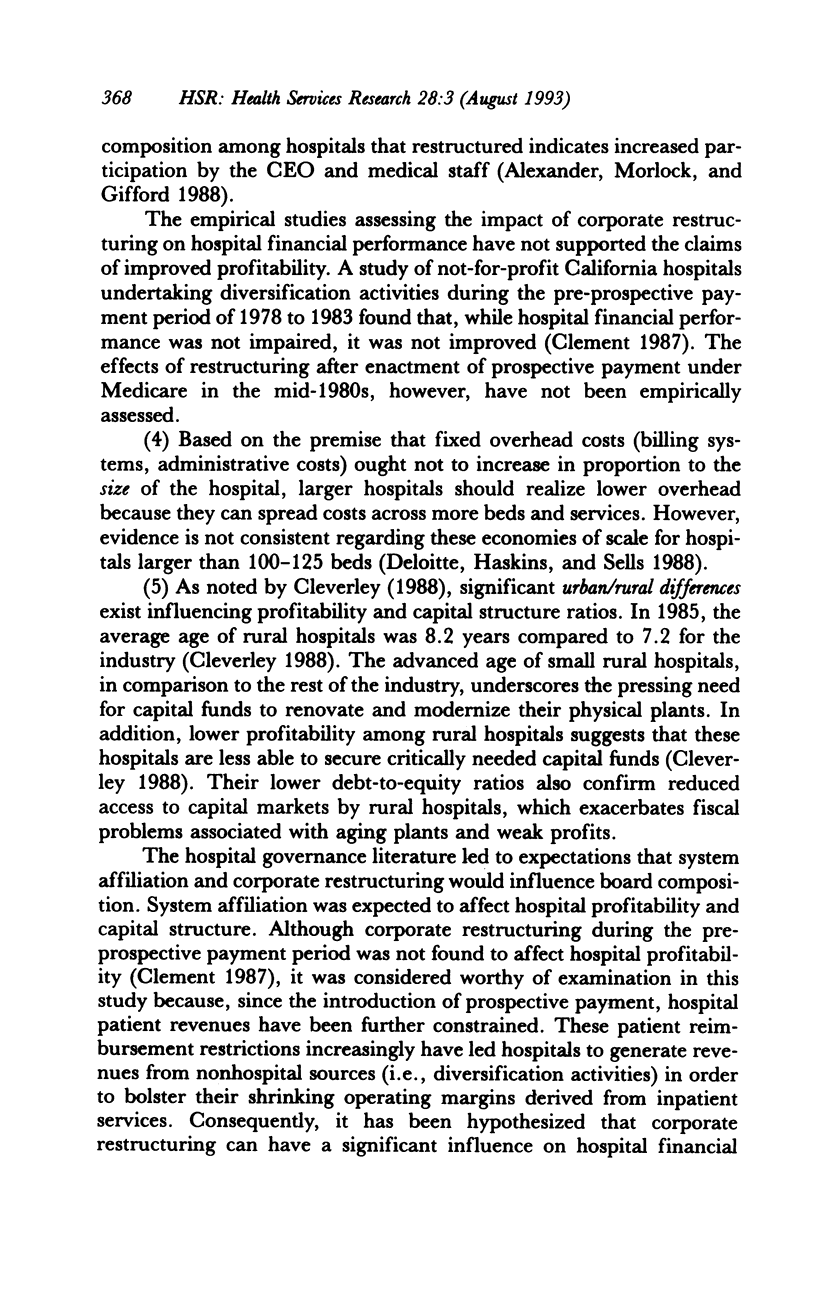
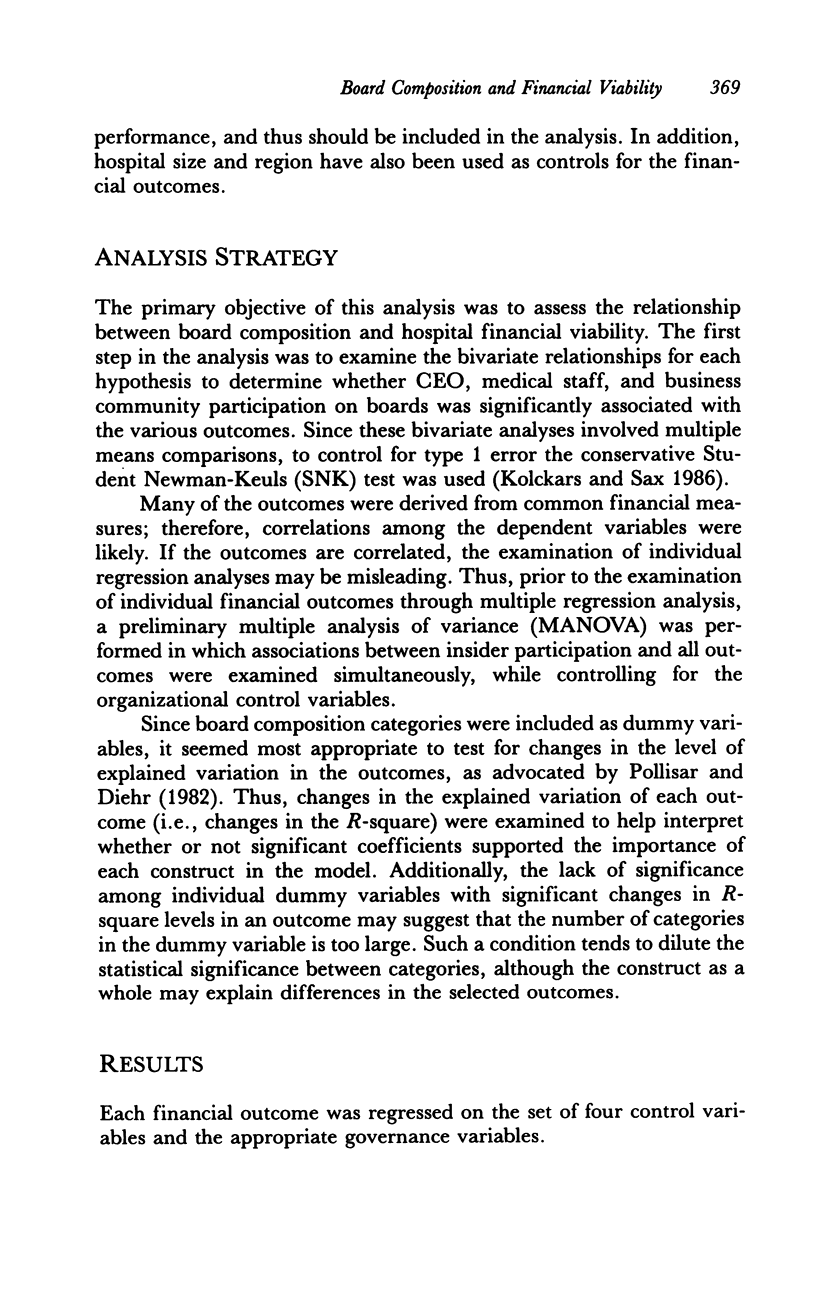
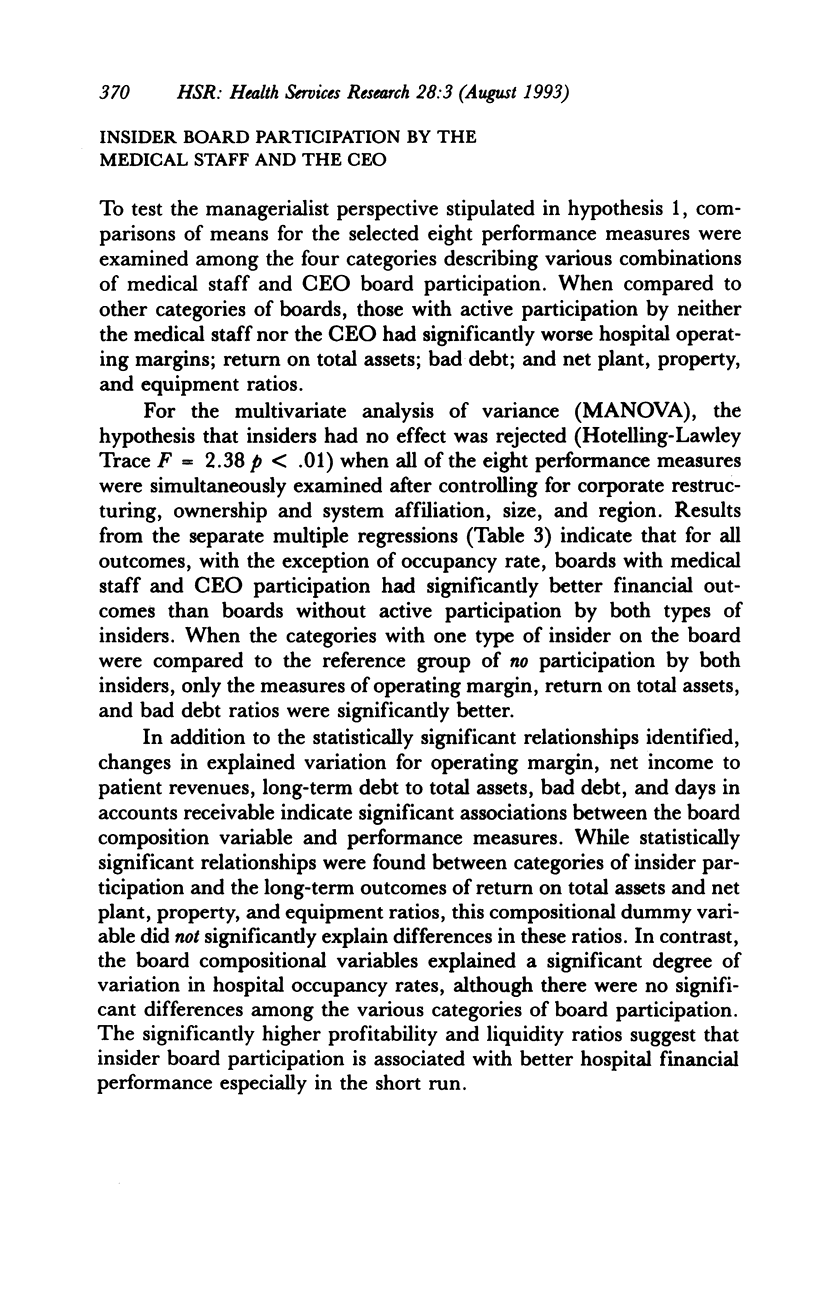
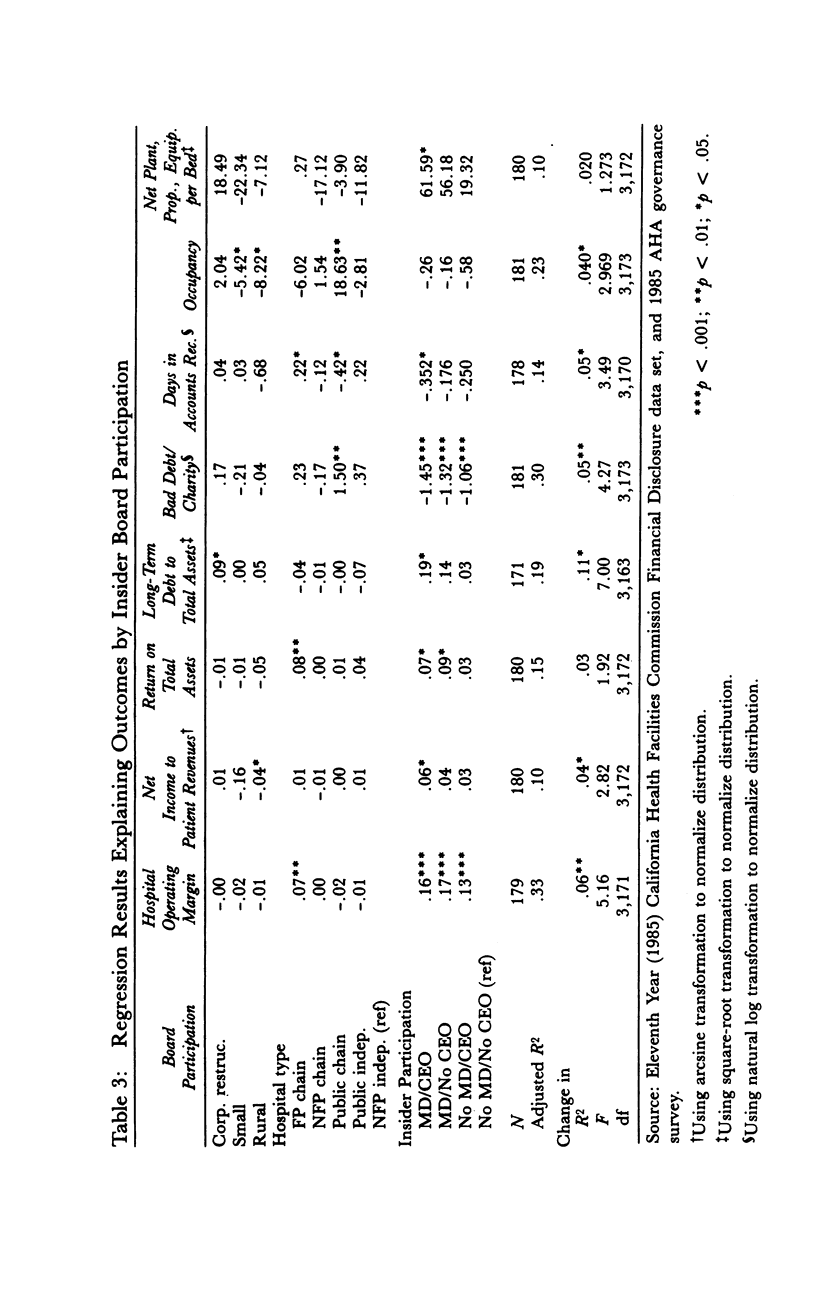
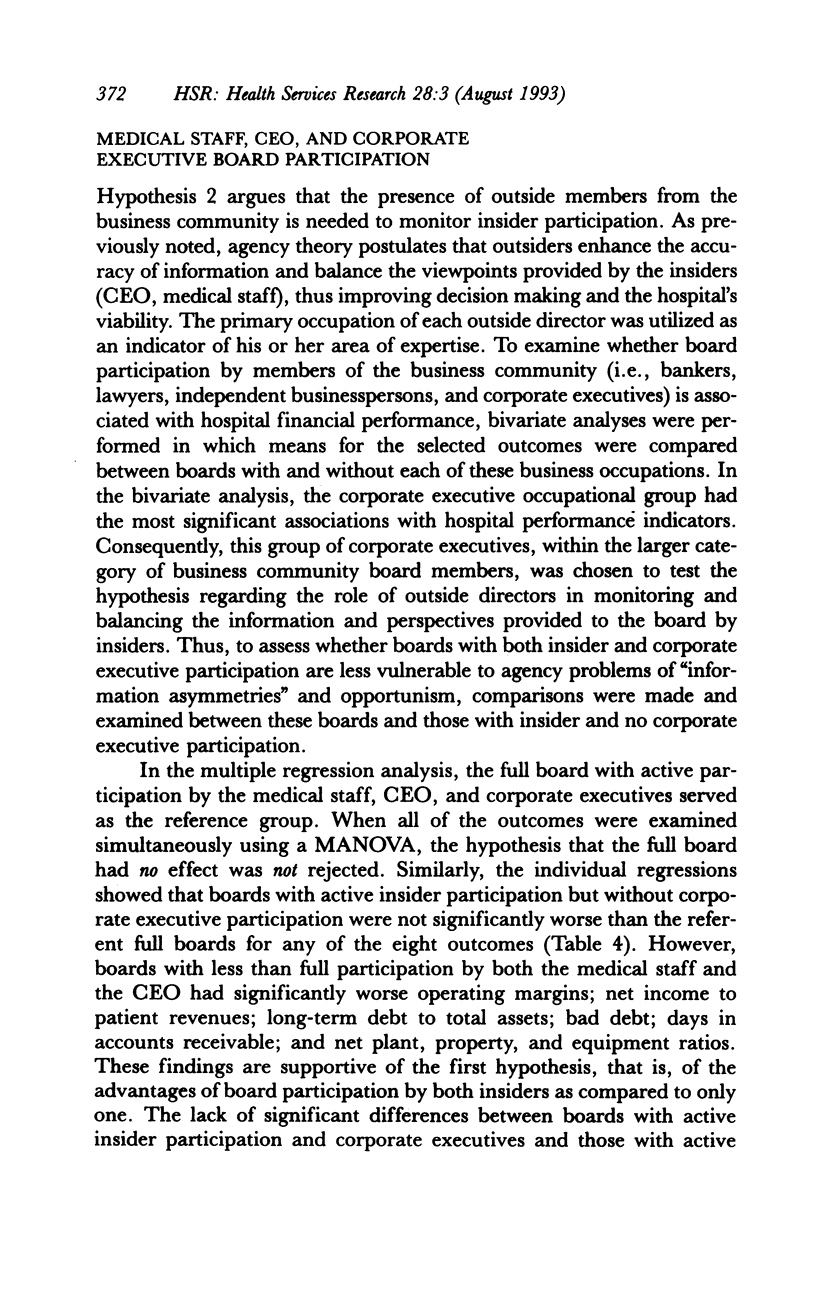
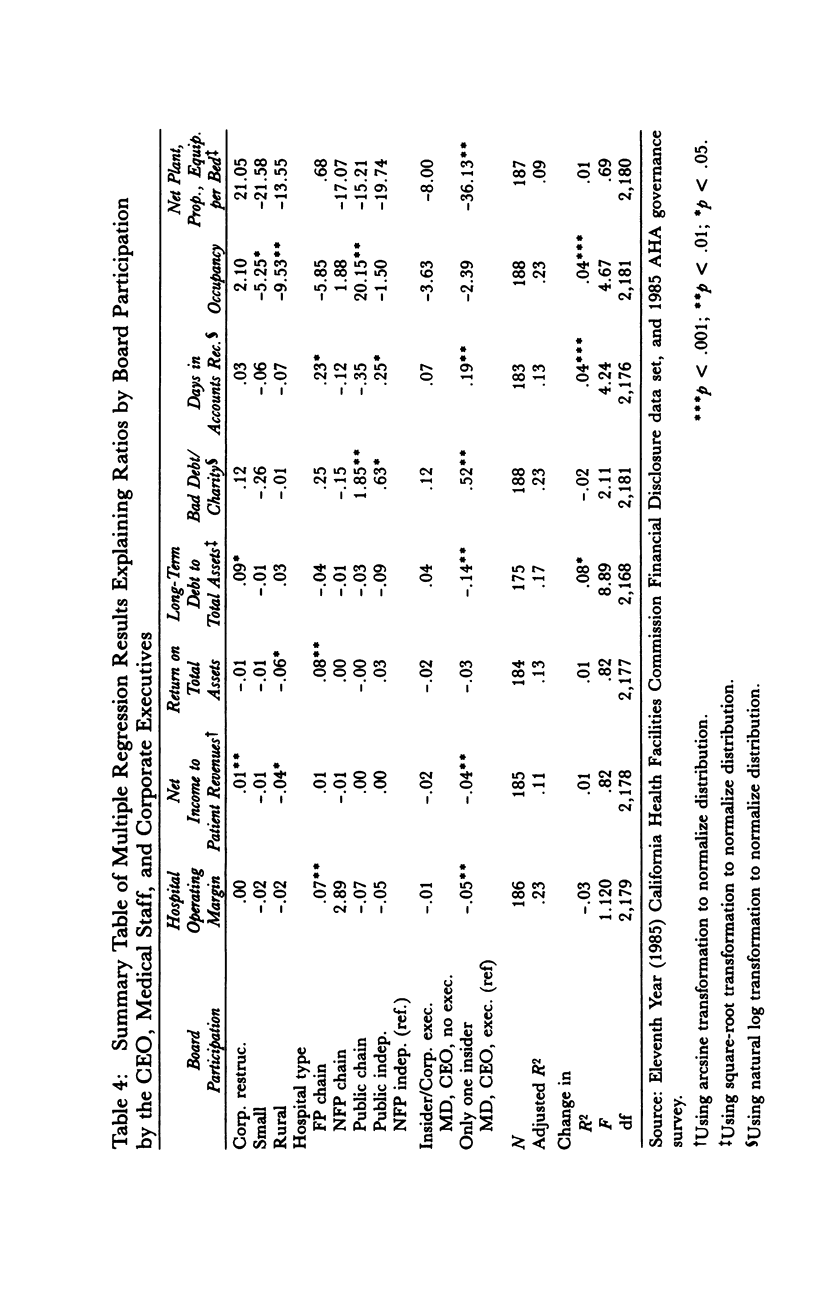
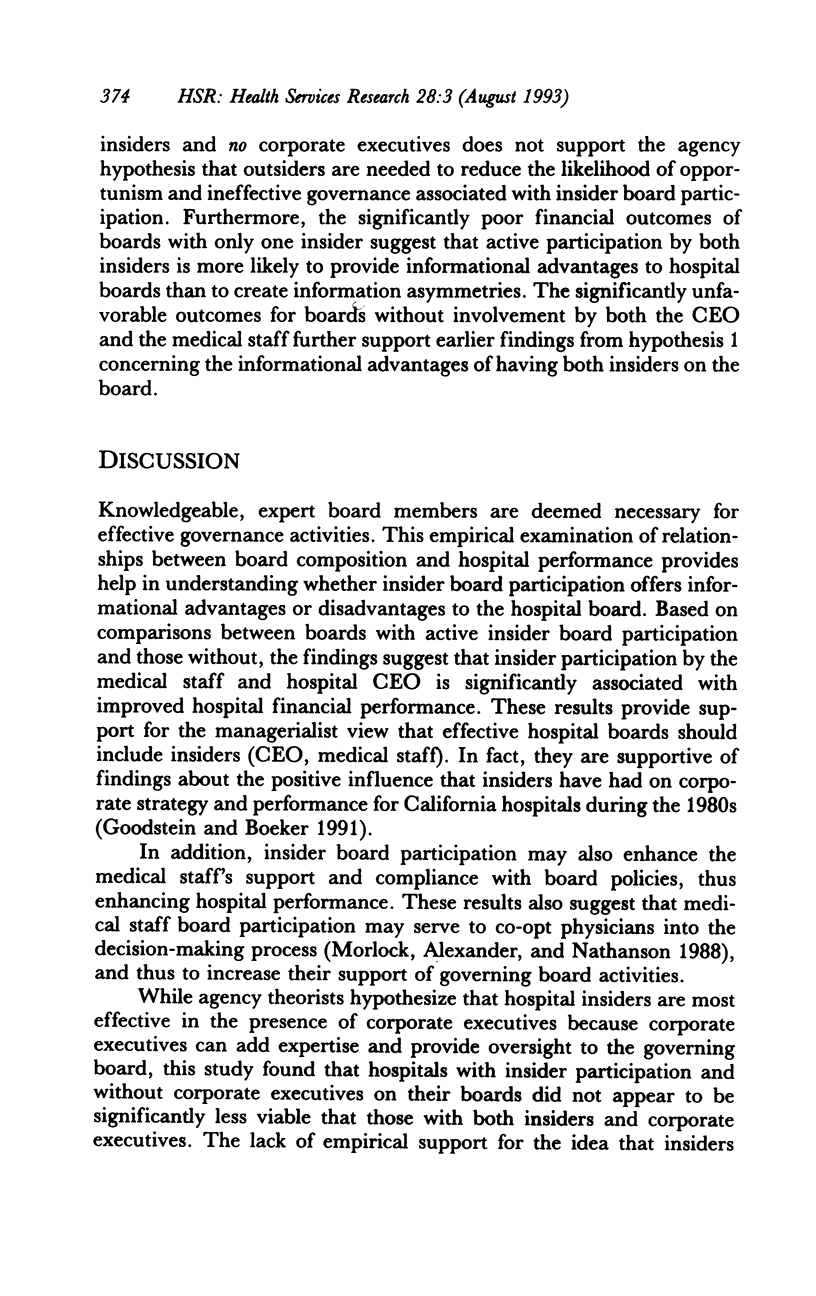
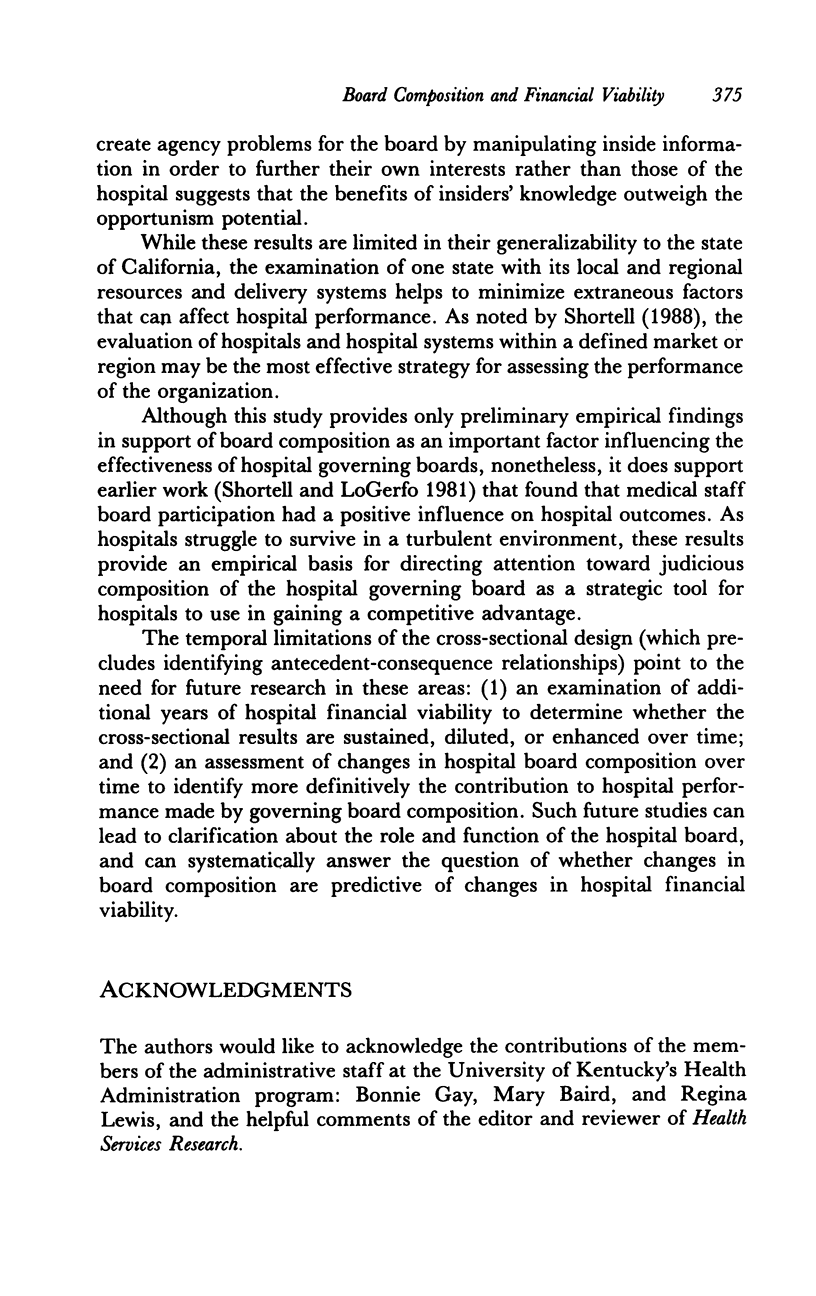
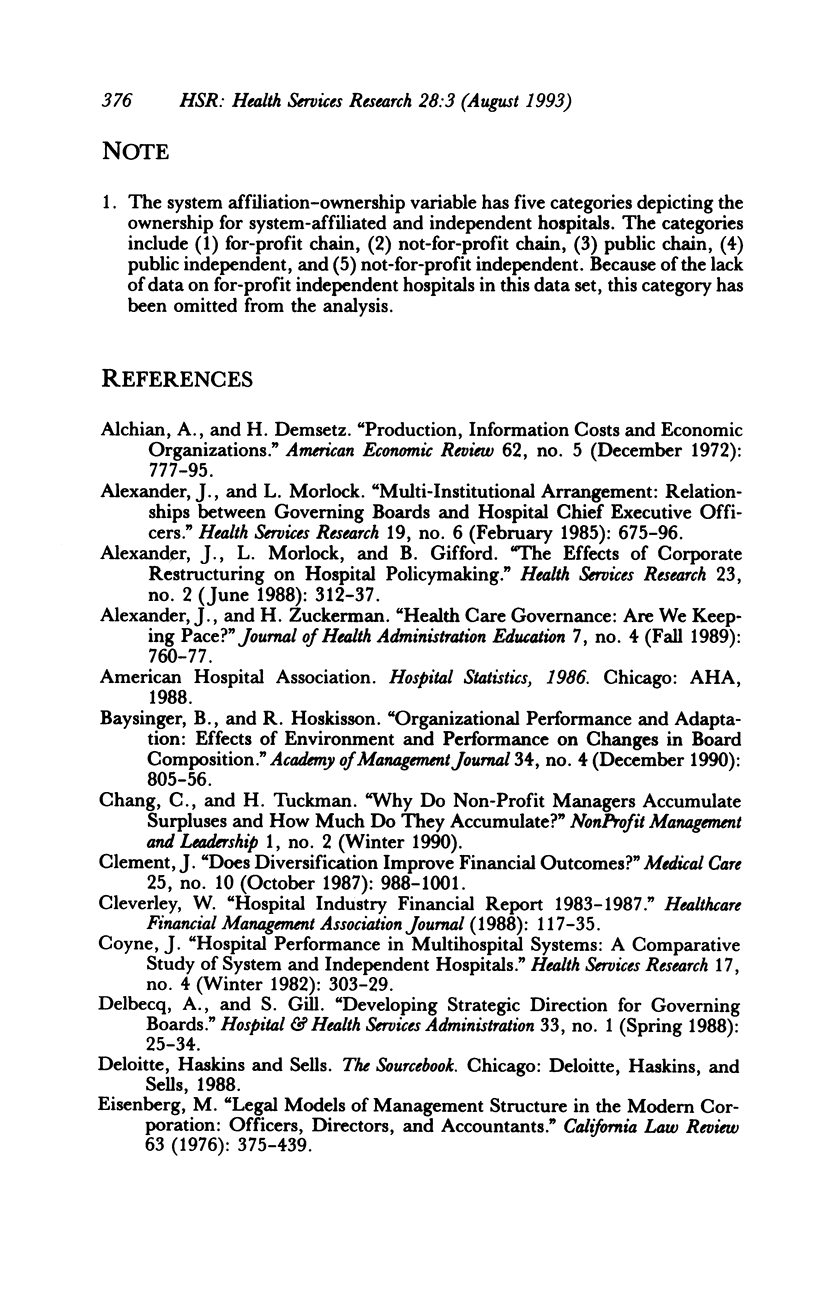
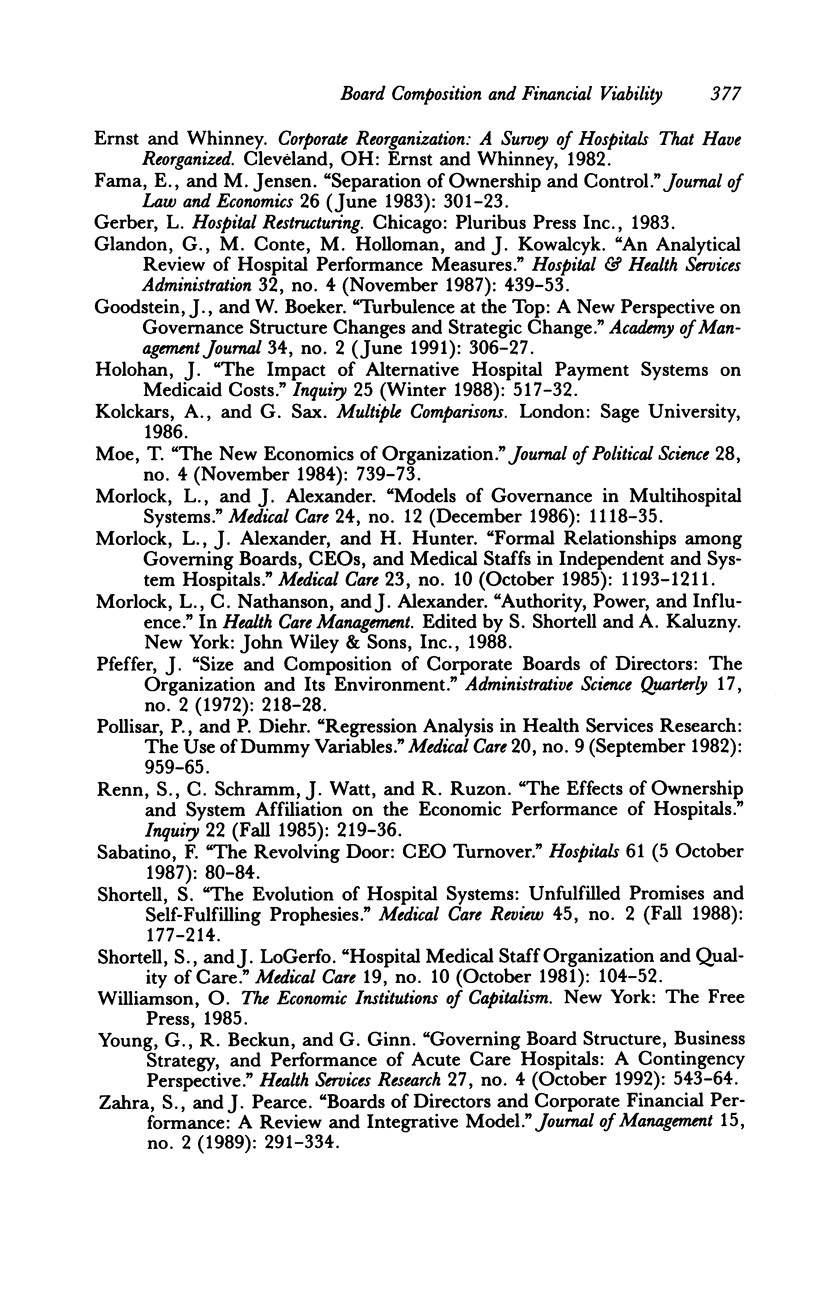
Selected References
These references are in PubMed. This may not be the complete list of references from this article.
- Alexander J. A., Zuckerman H. S. Health care governance: are we keeping pace? J Health Adm Educ. 1989 Fall;7(4):760–777. [PubMed] [Google Scholar]
- Alexander J., Morlock L. L. Multi-institutional arrangements: relationships between governing boards and hospital chief executive officers. Health Serv Res. 1985 Feb;19(6 Pt 1):675–699. [PMC free article] [PubMed] [Google Scholar]
- Clement J. P. Does hospital diversification improve financial outcomes? Med Care. 1987 Oct;25(10):988–1001. doi: 10.1097/00005650-198710000-00007. [DOI] [PubMed] [Google Scholar]
- Coyne J. S. Hospital performance in multihospital systems: a comparative study of system and independent hospitals. Health Serv Res. 1982 Winter;17(4):303–329. [PMC free article] [PubMed] [Google Scholar]
- Delbecq A. L., Gill S. L. Developing strategic direction for governing boards. Hosp Health Serv Adm. 1988 Spring;33(1):25–35. [PubMed] [Google Scholar]
- Glandon G. L., Counte M., Holloman K., Kowalczyk J. An analytical review of hospital financial performance measures. Hosp Health Serv Adm. 1987 Nov;32(4):439–455. [PubMed] [Google Scholar]
- Goodstein J., Boeker W. Turbulence at the top: a new perspective on governance structure changes and strategic change. Acad Manage J. 1991 Jun;34(2):306–330. [PubMed] [Google Scholar]
- Morlock L. L., Alexander J. A., Hunter H. M. Formal relationships among governing boards, CEOs, and medical staffs in independent and system hospitals. Med Care. 1985 Oct;23(10):1193–1213. doi: 10.1097/00005650-198510000-00008. [DOI] [PubMed] [Google Scholar]
- Morlock L. L., Alexander J. A. Models of governance in multihospital systems. Implications for hospital and system-level decision-making. Med Care. 1986 Dec;24(12):1118–1135. doi: 10.1097/00005650-198612000-00005. [DOI] [PubMed] [Google Scholar]
- Polissar L., Diehr P. Regression analysis in health services research: the use of dummy variables. Med Care. 1982 Sep;20(9):959–966. doi: 10.1097/00005650-198209000-00008. [DOI] [PubMed] [Google Scholar]
- Renn S. C., Schramm C. J., Watt J. M., Derzon R. A. The effects of ownership and system affiliation on the economic performance of hospitals. Inquiry. 1985 Fall;22(3):219–236. [PubMed] [Google Scholar]
- Sabatino F. The revolving door: CEO turnover. Hospitals. 1987 Oct 5;61(19):80–84. [PubMed] [Google Scholar]
- Shortell S. M. The evolution of hospital systems: unfulfilled promises and self-fulfilling prophesies. Med Care Rev. 1988 Fall;45(2):177–214. doi: 10.1177/107755878804500202. [DOI] [PubMed] [Google Scholar]
- Young G., Beekun R. I., Ginn G. O. Governing board structure, business strategy, and performance of acute care hospitals: a contingency perspective. Health Serv Res. 1992 Oct;27(4):543–564. [PMC free article] [PubMed] [Google Scholar]


